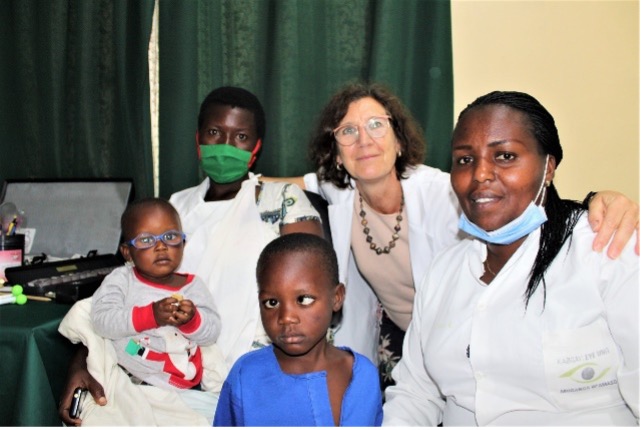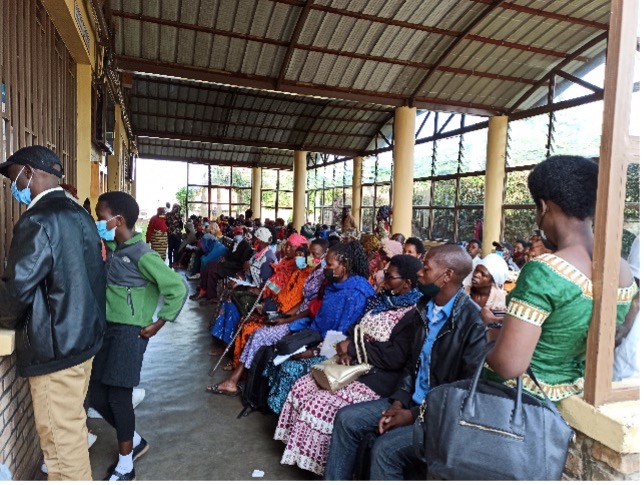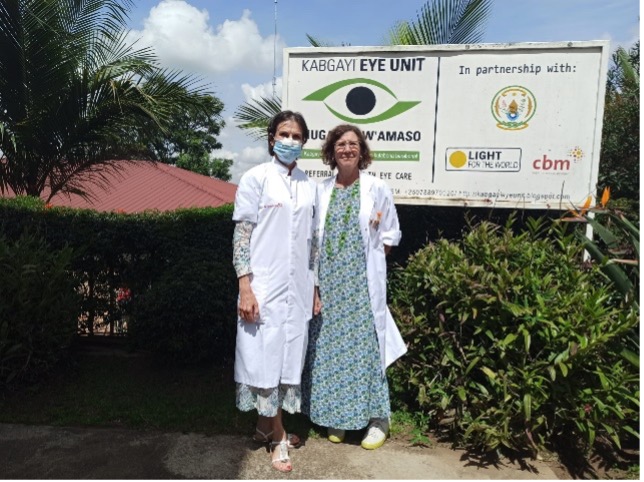The Kabgayi Eye Unit is one department in Kabgayi Hospital located in Muhanga District. Kabgayi hospital is a Catholic hospital (Catholic diocese of Kabgayi), and works in partnership with the Rwandan Ministry of Health, Light for the World and CBM (Christian Blind Mission). The Eye Unit started in 1993 but really was functioning well since 2002 when the first full time ophthalmologist arrived. They receive patients from all over the country and from neighboring countries (East DRC, Uganda and Burundi) and are focused on the poor.
They have an outpatient department with eye examination units, refraction unit, laser therapy, selling medicine and spectacles shop and a Low Vision Department. A ward with around 50 beds and an operating theatre.
The personnel are highly motivated. They serve around 150- 200 patients a day – being more busy at the beginning of the week. Beside doing a lot of eye operations, mainly cataract, they also do screening programs and eye examinations in the remote villages with mobile clinics. They teach local nurses and doctors and give especially training in basic eye care. Outreach surgeries are carried out all over Rwanda. Outreach surgery allows the Kabgayi Eye unit to reach the poorest Rwandans. The priorities for the Kabgayi eye unit, are in line with the priorities of the Rwandan National Plan for the prevention of Blindness.
The team consists of 4 ophthalmologists, 1 orthoptist, 1 low vision specialist, 1 optometrist, 1 optician, ophthalmic clinical officers (OCO’s), nurses, helpers, administrators….
The purpose of our mission was to examine strabismus patients and to prepare them for surgery. The local orthoptist Eularie was trained in orthoptics in Aravind Eye Hospital in Madurai, India and was very motivated.
We examined patients together and in this way I could improve their skills especially in ocular motility and in examination of difficult neurological patients.
Patients who needed strabismus surgery were discussed together with the orthoptist and the ophthalmologist and operated the next day by dr Sabine and dr Livin.
Patients with diplopia who could not have surgery were fitted with residual and used Fresnel prisms I have brought with me.
I enjoyed my mission very much, especially I like the purpose of Light for the World that they want to invest in training and improving the skills of the local eye care professionals.
https://www.internationalorthoptics.org/fileadmin/user_upload/Teaching_mission_Rwanda_May_2022.pdf



